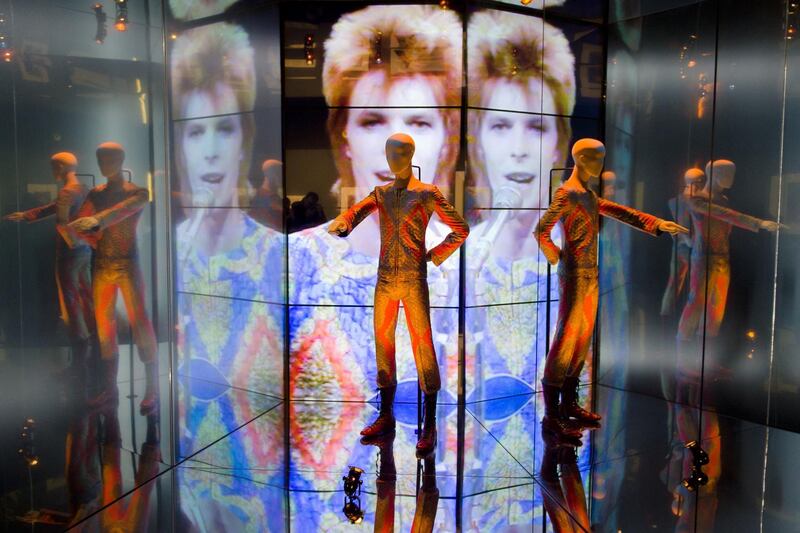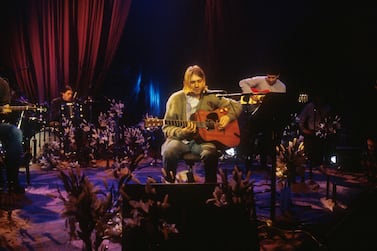It was autumn in New York, with a brisk chill in the air, when David Bowie walked into the famed Looking Glass Studios to record nine songs for his 50th birthday.
Having carefully studied his formidable back catalogue, he had chosen a mix of classic hits for the acoustic set to be played on the BBC for his milestone celebration.
First aired 23 years ago, the memorable hour-long interview with the then Radio One DJ Mary Anne Hobbs featured the tracks interspersed with birthday messages from the musical great and good. Bowie, a legend to legions, was reduced to tears when one from his own hero, Scott Walker, was played to him.
Now the iconic recording, called ChangesNowBowie, is being released for the first time, including The Man who Sold the World.
"I think he felt it was time to reclaim the song," his former collaborator and guitarist Reeves Gabrels told The National from his home in New York.
Bowie's new interpretation of the classic came just two years after Nirvana, the American grunge rock band, did a cover of it on their hit Unplugged in New York live acoustic album.
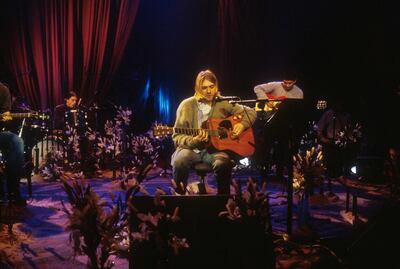
Gabrels, who played guitar and sang backing vocals in the birthday session, believes that of all the tracks chosen for the recording, The Man Who Sold the World was of special significance to Bowie.
“David wanted to try and get a good representation for the BBC show," he said.
"I think the fact that we had done a couple of different Man who Sold the World renditions at the time and the fact he kept bringing it up, I think that might be his favourite.
“But you never really knew with him.”
Previously unheard acoustic versions of David Bowie tracks unveiled
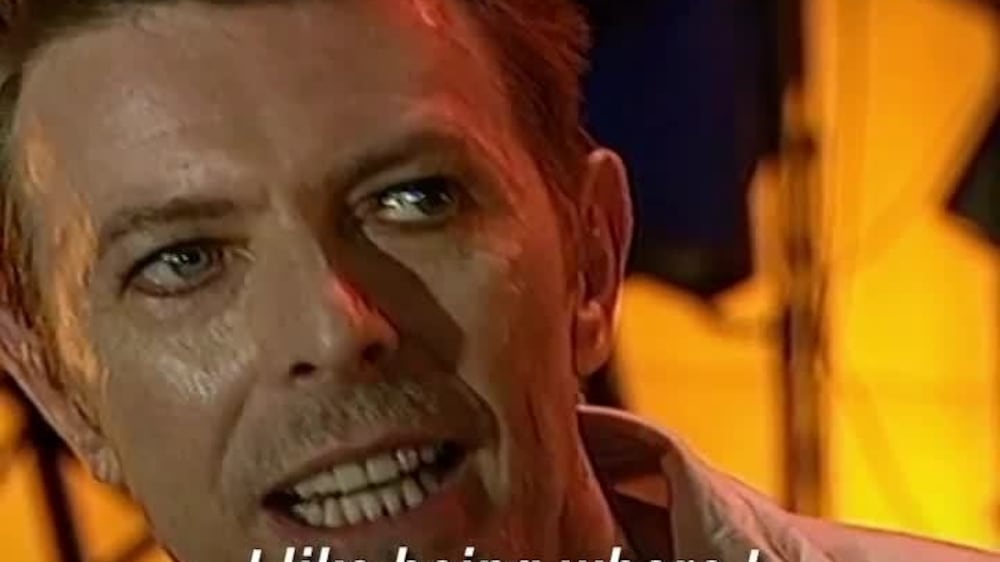
In the interview, Bowie told Hobbs that he wrote the song, which was first released 50 years ago, "because there was a part of myself that I was looking for".
“For me it always exemplified how you feel when you are young, when you know there is a piece of yourself you haven’t really put together yet and you have this great searching need to find out who you are,” he said.
The tracks are being released four years after the star’s death to celebrate International Record Store Day, which was due to be on Saturday. A limited edition vinyl was originally set to be issued for the occasion but because of the coronavirus outbreak the event has been postponed until June 20.
However, Parlophone, the record label behind the release, decided to make the LP available for livestreaming from Friday.
“We recorded it very quickly in just two to three days, bearing in mind we had never played some of the songs before and David had to relearn some of them,” Gabrels said.
“I listened to the recording last night for the first time in over 20 years and was really happy with it.
"Sometimes you listen back and cringe, but I’m proud. I think we did a pretty good job.”
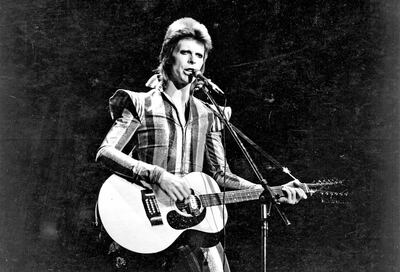
Gabrels joined The Cure in 2012 and has had a successful musical career with the British band to this day, but he still speaks with a sense of wonder about his first encounter with Bowie all those years ago. The two met by chance in 1987 backstage at a gig and spent the next 13 years writing, producing and performing together.
“He invited me to his home in Switzerland for the weekend and I ended up staying a month,” Gabrels recalled.

“He had loads of Monty Python outtakes and we sat and watched Monty Python, going through his wine cellar and getting up and writing songs.
“When we started writing together, I just assumed that was normal until years later when I realised that he didn’t really collaborate with other songwriters. We did close to 50 songs together.
“One of my fondest memories of him would be when we were on tour or at his home, and at 10pm every night he would have a bowl of Weetabix and just sit with his legs pulled up to eat it watching TV.
"It was just so warm and lovely. It was his comfort thing to do no matter where we were.”
Other tracks in the collection include the Velvet Underground's White Light/White Heat, Aladdin Sane, Shopping for Girls, Lady Stardust, The Supermen, Repetition, Andy Warhol and Quicksand.
This week, a video for Bowie's 1997 track Repetition was also released for the first time.
“We had 13 years together," Gabrels, now 63, said. "I was proud of everything we did. I got to play the guitar in places and with people I never imagined.
“He was wonderful, just great. To hear these songs acoustically, you really hear David’s voice. They’re just great.
“Just to have one of these tracks released would have made me proud but to have nine is unbelievable.
"I told my wife that if coronavirus took me now I know I’ve pretty much done everything I wanted to do in my life.”
Bowie died of cancer on January 10, 2016, days after turning 69 and the release of his 25th studio album, Blackstar. He had kept his illness a secret from the world.
The previously unreleased ChangesNowBowie tracks are available at https://lnk.to/DavidBowie-CNB
